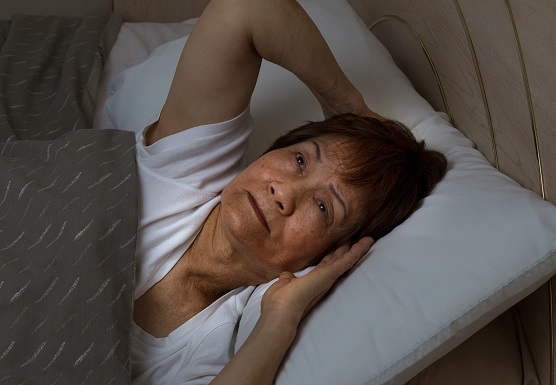
As we age, a good night’s sleep can elude us. Geriatrician Dr Chan Kin Ming of Chan KM Geriatric & Medical Clinic, Mount Alvernia Hospital, explains why older folks find it hard to sleep and what they can do to change it.
SLEEP REQUIREMENTS THROUGH THE YEARS
As people age, most older people find that they have a harder time falling asleep, and wake up more frequently and earlier in the morning.
Regardless of age, sleep requirements vary from person to person, and are genetically determined, shared Dr Chan. Apparently, some people are fine with just a few hours of sleep every night, while others need a lot more.
Though we tend to need less sleep as we grow older, sometimes by up to 1 to 1.5 hours less, there is no magic formula to determine the ideal number of hours of sleep for an elderly person. “It depends on how much sleep they needed when they were younger. If they needed very little sleep previously, I will use that as a gauge of the number of hours of sleep they need now,” said Dr Chan.
BOTH QUALITY AND QUANTITY COUNT
Dr Chan also takes into account how his patients feel when they wake up in the morning. If they still feel very tired and sleepy, then they have probably had inadequate sleep and should try to sleep for a longer duration. Aside from duration, the quality of sleep is also important. Those who have enjoyed a deeper sleep (so-called Stage 3 and 4 stages) will feel fresher than those who have had less deep sleep (so-called Stage 1 and 2). Stage 3 and 4 stages of sleep are more restorative to the body.
SLEEPLESS IN SINGAPORE
There are many causes of sleeplessness among the elderly.
Common ones include:
1. Environmental conditions – unfamiliar environment, level of brightness, uncomfortable room temperature, noise, etc.
2. Medical conditions – arthritis causing pain, heart and chest conditions that cause breathlessness (like heart failure and bronchitis), stroke, depression, Parkinson’s disease, dementia, etc.
3. Medication use – like aminophylline, Ventolin, cafergot, diuretics, certain blood pressure medicine, steroids, etc.
4. Exposure to or consumption of stimulants – like coffee, tea, alcohol, nicotine, etc.
5. Sleep apnoea
6. Periodic limb movements during sleep, including restless leg syndrome and nocturnal leg cramps
It is important that family members of elderly citizens pay special attention to these issues and address them. After all, quality sleep allows the body to repair cell damage and revitalises the immune system. The latter is especially crucial for the elderly, whose bodies are not as strong as they once were in fighting debilitating illnesses.
HEALTHY SLEEPING HABITS
How then can the elderly combat the plague of sleep issues that puts their bodies at risk? The best solution is, of course, to cultivate healthy sleeping habits. Dr Chan urges his patients to:
1. Maintain a regular bedtime and rising time.
2. Keep active during the day and avoid napping. If there is a need to nap, make sure it is confined to no longer than an hour.
3. Exercise regularly and have exposure to the sun during the day. This will help you sleep better at night.
4. Practise good sleep hygiene – i.e. the bed is meant for sleeping, so do not read, work or watch TV while in bed. If you are still unable to fall asleep after 30 minutes of lying in bed, get out of bed and perform some soothing activity like listening to music or light reading until you feel tired and sleepy again, then go back to bed.
5. Relax mentally before bedtime.
6. Avoid taking heavy meals before bedtime
7. Limit alcohol, coffee and nicotine before bedtime.
All that remains to be said is – sweet dreams!
Article contributed by Dr Chan Kin Ming, an accredited doctor of Mount Alvernia Hospital.
This article is taken from our My Alvernia Magazine Issue #36. Click here to read the issue on our website or on Magzter.